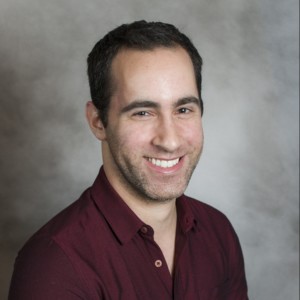Alumni Fellows
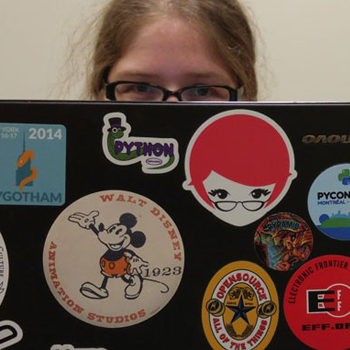
Hannah Aizenman
Digital Fellow and Ph.D. Candidate, Computer Science, The Graduate Center (CUNY)
Hannah Aizenman was a doctoral student in Computer Science and a Digital Fellow at the Graduate Center, CUNY, while working on the DHRI team. Her research is in using machine learning to make sense of and visualize multivariate spatio-temporal, mostly climate, datasets and the algorithms run on them. At the City College of New York, she taught multiple variants of introduction to programming a and piloted peer led team learning for the Computer Science department. She also teaches data science using Python and mentors high school stunds for the CREST HIRES earth science and remote sensing REU at CCNY. She is an organizer of the New York City Linux User's Group, is on the planning committee for the American Meteorology Society's Python Symposium, and a core contributor to the matplotlib Python visualization library.
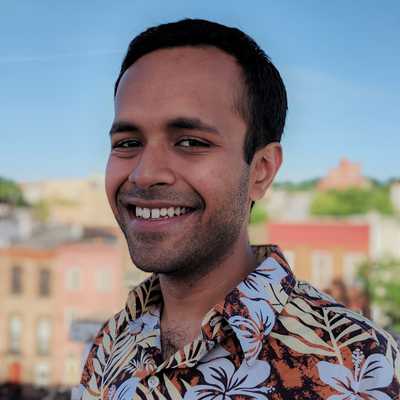
Param Ajmera
Digital Fellow and Ph.D. Candidate, English, The Graduate Center (CUNY)
Param Ajmera is an English PhD candidate and Digital Fellow at the CUNY Graduate Center. He received his BA in English Literature and Economics from Denison University, and his MA in English as well as a Graduate Certificate in Digital Humanities from Northeastern University. His research interests include Race and Ethnicity Studies, American Studies, and Digital Humanities. Param’s dissertation project is an archival study of the early history of Indian international students in the United States. His research theorizes the experiences of these students to discuss ways of building transnational solidarities against colonialism, racism, and patriarchy. Alongside his dissertation, Param is also developing a website titled Indian Students Abroad that exhibits his archival findings. Param has previously worked on the Women Writers Project, the CERES Exhibit Toolkit, and the Graduate Center Digital Research Institute. He currently serves on the Editorial Collective of The Journal of Interactive Technology and Pedagogy.
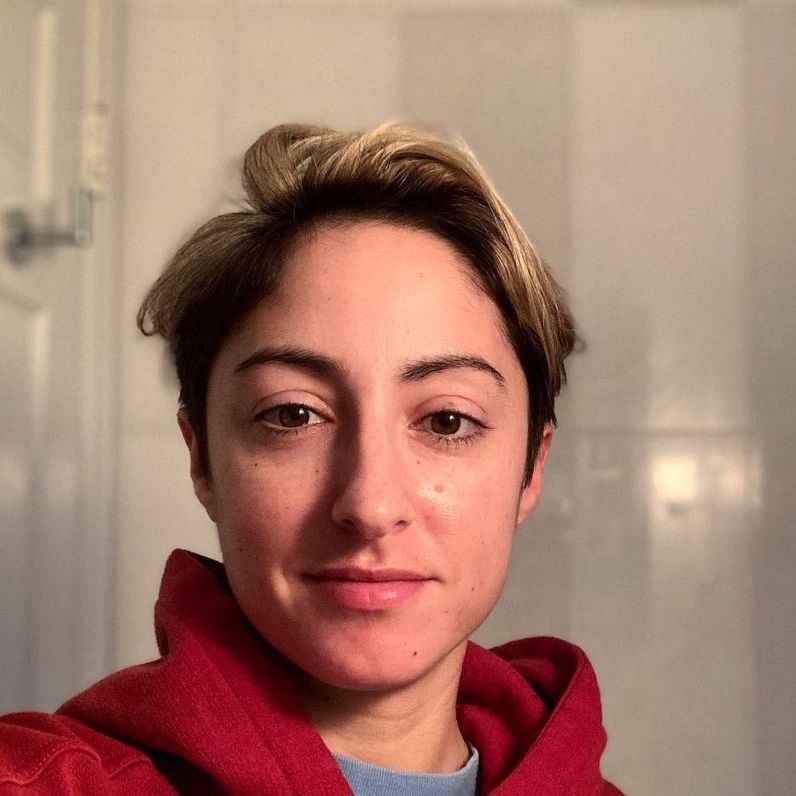
Filipa Calado
DHRI Program Coordinator and Ph.D. Candidate, English (CUNY)
Filipa Calado is a Ph.D. candidate in the English program at the Graduate Center. Her research explores the interface between digital media and queer studies. Her dissertation, 'Queer Tools,' takes a critical look at digital tools like text analysis, text encoding, and digital archiving to see how they work in unexpected ways to study queer literature. As a Digital Fellow, she teaches workshops on Intro to DH Tools, Text Encoding with TEI, Digital Annotation, Introduction to Python, and Web Scraping. As an undergraduate instructor, she has taught English and Latinx Literature at Hunter College and now teaches Writing and Critical Thinking courses at NYU.
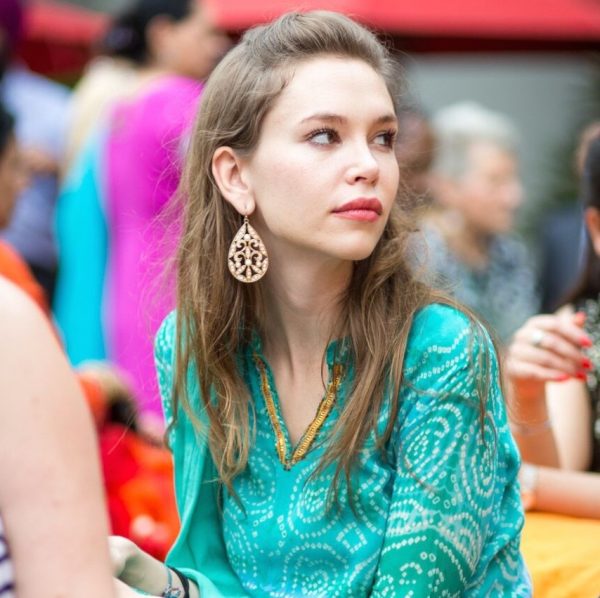
Kelsey Chatlosh
Digital Fellow and Ph.D. Candidate, Anthropology, The Graduate Center (CUNY)
Kelsey Chatlosh is a cultural anthropology Ph.D. student and Digital Fellow at the Graduate Center of the City University of New York (CUNY). Her future dissertation research focuses on Afro-Chilean activism for state recognition, territory and alternative discourses of memory and history, and how they are contesting dominant narratives of Chilean history and nationhood. Her work as a Digital Fellow is focused on digital tools and platforms for qualitative research and oral interviews, with an emphasis on ethics, political economy and decolonizing and feminist methods.
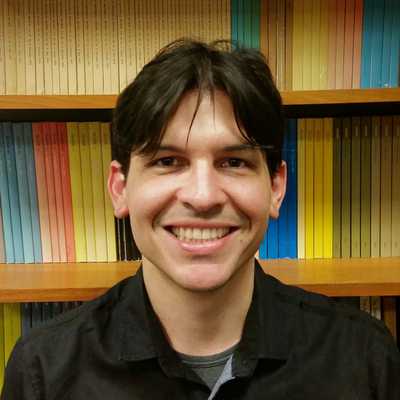
Rafael Davis Portela
Digital Fellow and Ph.D. Student, History, The Graduate Center (CUNY)
Rafael Davis Portela is a Ph.D. student in the History department, where he researches the role of transnational capital in the urban development in Latin America. He is also a member of the Center for Latin American, Caribbean and Latino Studies–CLACLS, and Adjunct Professor at the John Jay College of Criminal Justice, where he teaches courses on Latin American History. He is also into digital tools, and interested in anything related to teaching.
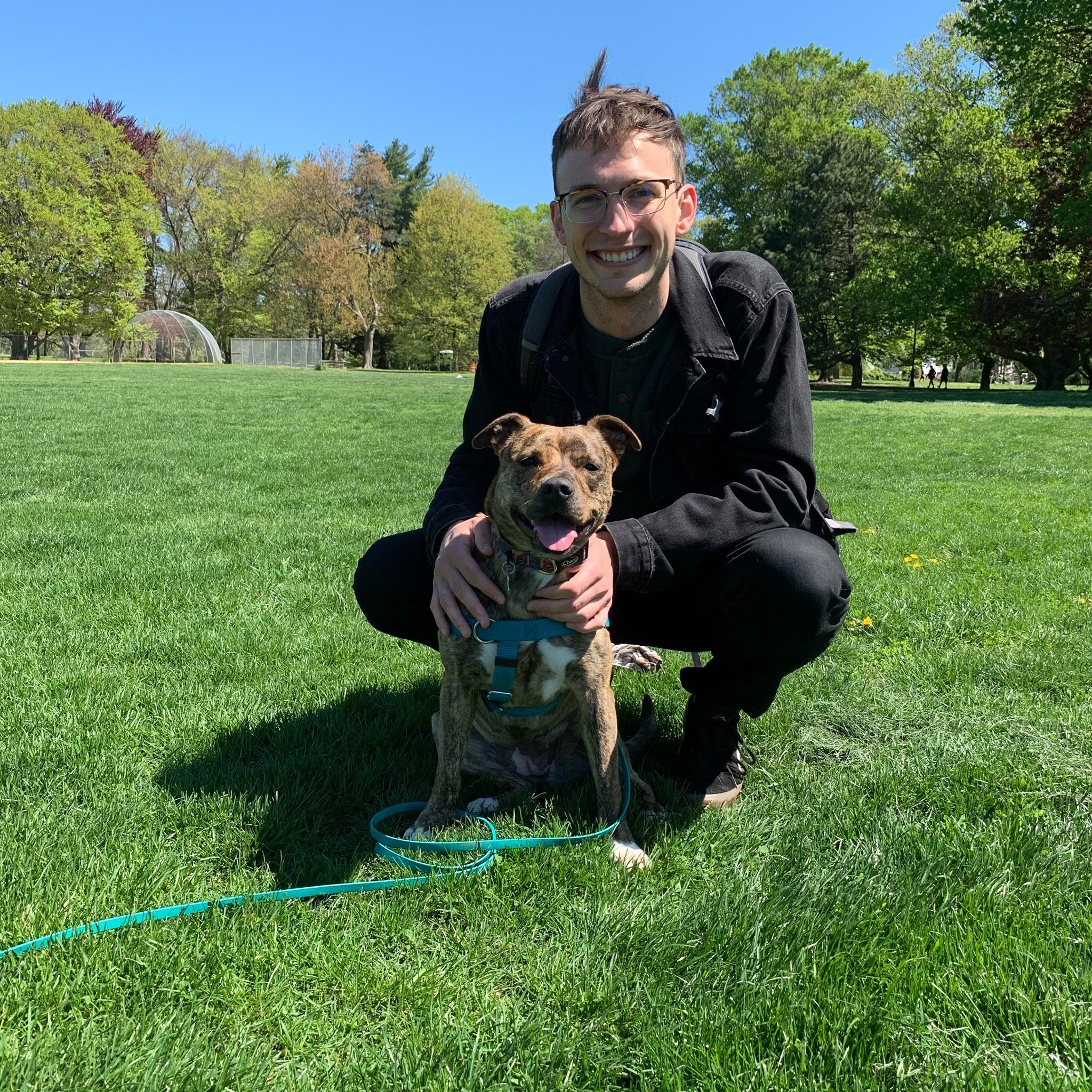
Connor French
Digital Fellow and Ph.D. Candidate, Biology, The Graduate Center (CUNY)
Connor French is a Ph.D. candidate in the Biology department. He studies the impact of historical climate change on the spatial distribution of animals, with a focus on reptiles and amphibians in the Brazilian Atlantic Forest. As a GC Digital Fellow, Connor specialized in proselytizing the R programming language, especially in contexts outside of his narrow academic field.
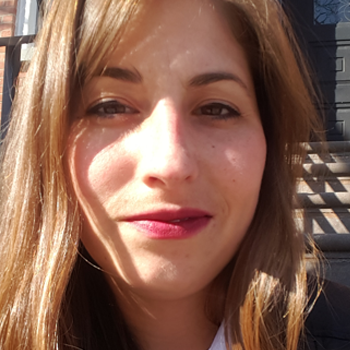
Kristen Hackett
Digital Fellow and Ph.D. Candidate, Environmental Psychology, The Graduate Center (CUNY)
Kristen Hackett is a scholar, activist and educator living and working in New York City. She is a Ph.D. Candidate in Environmental Psychology Program at the Graduate Center of the City of New York, a Digital Fellow with the GC Digital Scholarship Lab, a Digital Pedagogy Fellow with the OpenLab at City Tech, a Coordinator of OpenCUNY, and a member of the Executive Committee of the Justice For All Coalition. Her research interests are in housing and community development in NYC, political and social responses to increasing insecurity and precarity and how art and technology can be used in consciousness-raising and resistance efforts and to advocate for community/human-centered policy development. For her dissertation, Kristen is exploring these themes through the lens a proposed rezoning in Long Island City, NY.
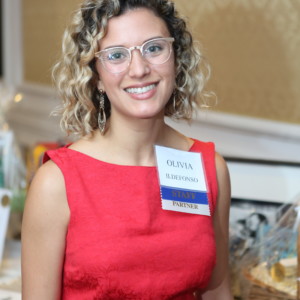
Olivia Ildefonso
Digital Fellow and Ph.D. Student, Earth and Environmental Sciences, The Graduate Center (CUNY)
Olivia Ildefonso is a Ph.D. Student in Earth and Environmental Sciences with a specialization in Human Geography at the Graduate Center (CUNY). She studies the political economy of school segregation. Her research focuses on Long Island, New York. Olivia is a Long Island native and has worked as a racial justice activist on Long Island for the past ten years. She has worked for civil rights organization, ERASE Racism since 2010 and she has served on the board of directors for STRONG Youth since 2013. Olivia is currently a GC Digital Fellow. She specializes in GIS Mapping, website management, and multi-media storytelling. Before becoming a GC Digital Fellow, Olivia was an Adjunct Lecturer at Queens College and a Writing Across the Curriculum (WAC) fellow at John Jay College.
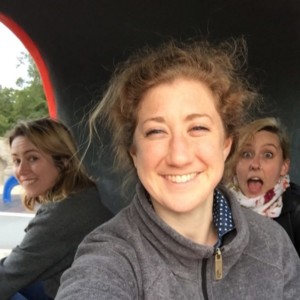
Jojo Karlin
Digital Fellow and Ph.D. Candidate, English, The Graduate Center (CUNY)
Jojo Karlin researches transmissions of memory after periods of rapid technological transformation. Coming from a theater background, Jojo loves the intersection of disciplines, multiple media, and diverse expertises she finds in Digital Humanities. For her first big DH project, she did outreach for TANDEM, a web tool that gathers text and image data, and she now proudly coordinates outreach for DH Box, the GC's NEH-funded DH cloud laboratory. She is a freelance editor for the Tow Center for Digital Journalism at Columbia, and is developing a digital interface for a collection of historical letters. Jojo is deeply interested in digital editions preserving past materiality while exploring new materials.
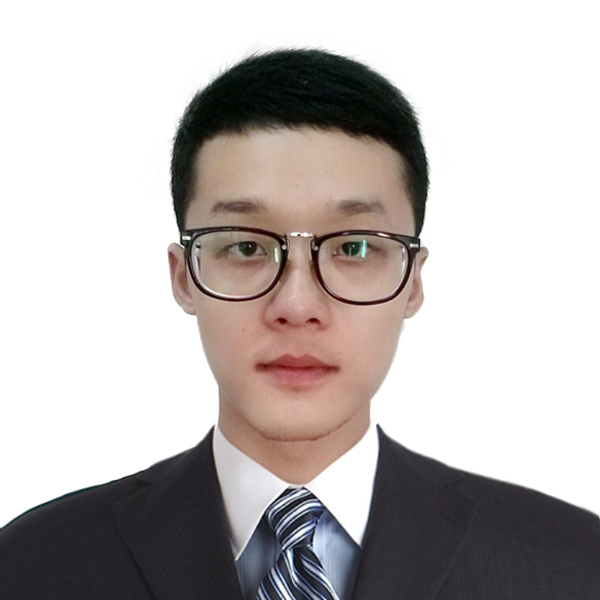
Yuxiao Luo
Digital Fellow and Ph.D. Candidate,Business (Information Systems), The Graduate Center (CUNY)
Yuxiao Luo is a Ph.D. candidate in Business (Information Systems). He studies the dark side of artificial intelligence and its impact on the consumers in e-commerce. He has aslo done some research in the application of machine learning in portfolio management. As a GC Digital Fellow, Yuxiao teaches workshops in the R programming language and its application in predictive modeling. He is also interested in topic modeling and data mining with R. As an undergraduate instructor, he teaches Intro to Stats and Intro to Information Systems at Baruch College, CUNY.
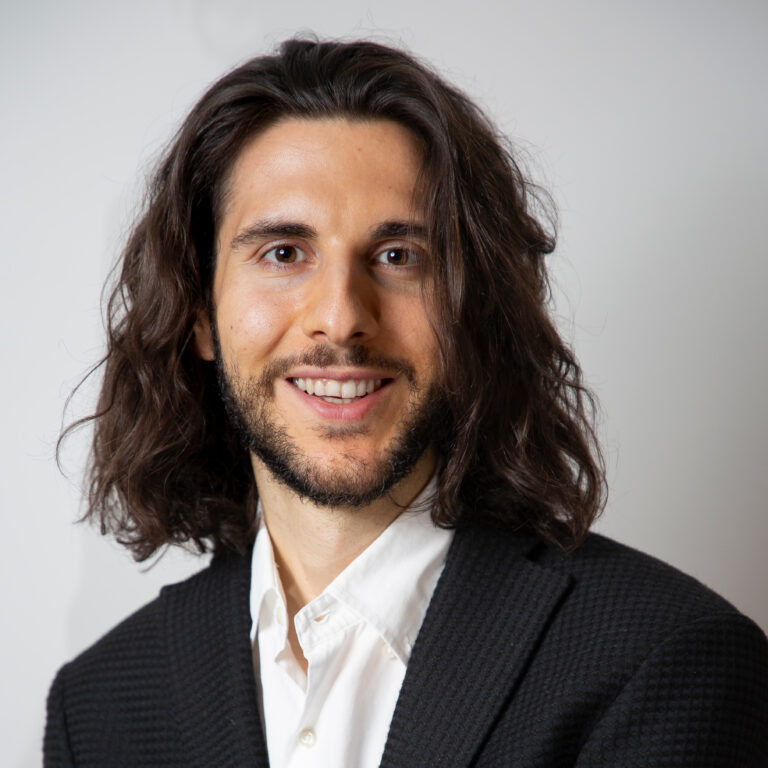
Stefano Morello
Digital Fellow and Ph.D. Candidate, English (CUNY)
Stefano Morello is a Ph.D. candidate in English. He holds an M.A. in American Literature from the University of Naples "L'Orientale” and an M.A. in American Studies from the University of Torino. His academic interests include American Studies, pop culture, poetics, queer theory, and transnational screen cultures. Oh, and punk-rock.
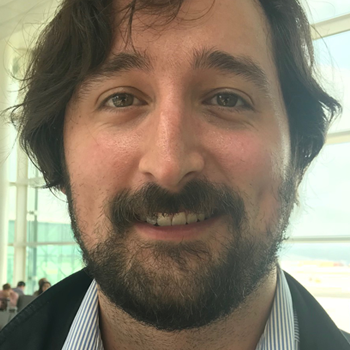
Javier Otero Peña
Digital Fellow and Ph.D. Candidate, Environmental Psychology, The Graduate Center (CUNY)
Javier Otero Peña is a GC Digital Fellow since 2016 and a member of the Public Space Research Group, and currently works as a research assistant for the PARCS study in the CUNY School for Public Health. His dissertation will study the contextual impacts of park renovations in New York City, and will involve a map analysis using GIS technologies, a mini-ethnography using Qualitative Data Analysis (QDA) software, and natural language analysis of social media posts. Javier’s field research paper studied the politicization of public spaces through a participatory mural in East Harlem. In 2016, he took part in the CUNY-Humboldt University Summer School in Berlin, and in 2017 he participated in the Digital Humanities Research Institute in Victoria University, Canada. He also received the 2017 Provost’s Digital Innovation Grant. Javier holds a Master in Environmental Policies and Sustainable Development, and taught a class on Sustainable Development in Latin America and the Caribbean at the Paris Catholic University. He also studied Urban Planning and Management at UCV, and Sustainable Urban Mobility in Developing Countries (UNITAR). Javier worked as a consultant for the United Nations Environment Programme for three years.
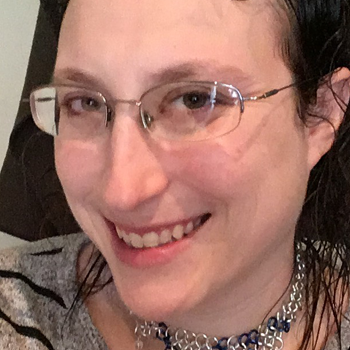
Rachel Rakov
Former Digital Fellow and Ph.D. in Linguistics
Rachel Rakov was a doctoral student in the Linguistics Department, with a focus in Computational Linguistics, when she worked on the DHRI team. Her dissertation research is on using prosody modeling to train computational models that can distinguishing between native and non-native English questions. She has also worked on building tools for automatic language identification, and tools for automatic detection of sarcastic speech. She has presented her research at Interspeech and ASRU. In addition, Rachel has helped develop and teach courses in Python programming and Natural Language Processing for the Computational Linguistics M.A. program at The Graduate Center. She was also a consultant on O\'Reilly book Introduction to Machine Learning, where she provided input on how to make the content of the book more accessible to readers without a math or CS background. Rachel has been an intern with the Speech-Language Technology team at Interactions, and taught at Hunter College.

Patrick Smyth
Research Computing Coordinator, Columbia University and Ph.D. Candidate, English as well as former Digital Fellow, The Graduate Center (CUNY)
Patrick Smyth's research focuses on Utopian thought and the history of science in 18th and 19th century British literature. As a digital humanist, Patrick is concerned with digital platforms for research and pedagogy. He is currently a developer on the NEH-funded DH Box, a cloud-based platform for accessing digital humanities tools, and has received a Provost's Digital Innovation grant for an online archive of science fiction works. His most recent publication is “Ebooks and the Digital Paratext: Emerging Trends in the Interpretation of Digital Media” in Examining Paratextual Theory and Its Applications in Digital Culture. Patrick was a 2010 Fulbright Teaching Fellow in Berlin, Germany, and teaches composition and literature at Queens College.
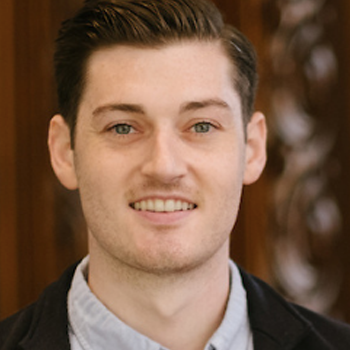
Patrick Sweeney
Former Digital Fellow and Ph.D. Candidate, Psychology, The Graduate Center (CUNY)
Patrick Sweeney was a Ph.D. Candidate in Psychology and a Digital Fellow at the Graduate Center, CUNY, while working on the DHRI team. His dissertation traces the historical development of methods for quantifying human experience in psychology, business, and politics; and shows how their entwined histories animate current controversies surrounding the use of personal digital data in research, propaganda, and marketing. He has published on topics including the ethics of social media data in psychological research, media representations of social identities and urban change after trauma, and the theory and praxis of ethics and methods pedagogy. His work as a GC Digital Fellow has focused on workshop development, ethics in digital research, and supporting social media and web tools. He has previously taught at Hunter College, CUNY, and served as a Writing Across the Curriculum fellow at Kingsborough Community College, CUNY.
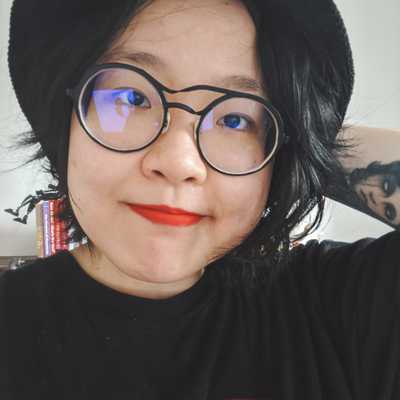
Di Yoong
Digital Fellow and Ph.D. Candidate, Critical Social/Personality Psychology, The Graduate Center (CUNY)
Di is currently a PhD candidate in Critical Social/Personality Psychology at CUNY, The Graduate Center (GC). They are also a GC Digital Initiatives Digital Fellow. Broadly, their work is on understanding the relationality between systems of oppression and the individual. They are interested in identities as discourses, and the ties between transnationalism and diasporas. Currently, they are working on several projects that is exploring identities as discourses, including in alt-right spaces, K-pop/Hallyu, and the experiences of queer and trans Asian (American) in the US. As a GC Digital Initiatives Digital Fellow, they are also interested in understanding what ethics is within computational social science, digital humanities, and public humanities projects. They are also invested in bridging the gaps of technology literacy, especially within underserved communities.
Alumni Faculty
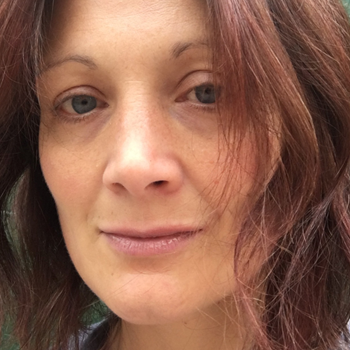
Nicky Agate
Assistant Director of Scholarly Communication and Projects, Columbia University Libraries
Nicky Agate is the assistant director of scholarly communication and projects at Columbia University, where she leads a team that works on digital humanities initiatives, digital publishing, and the institutional repository. Until February of this year, she was head of digital initiatives at the MLA, where she was responsible for Humanities Commons (hcommons.org), MLA Commons (mla.hcommons.org), and CORE (hcommons.org/core). She is a co-PI on the HuMetricsHSS initiative (medium.com/tag/humetrics), which seeks to establish a framework for values-based assessment and evaluation in the humanities and social sciences and a founding editor of The Idealis, an overlay journal that promotes quality open-access scholarship about scholarly communications issues (theidealis.org). She serves on the research committee of the Library Publishing Coalition and the editorial board of the Journal of Librarianship and Scholarly Communication (jlsc-pub.org). Nicky holds a Ph.D. in French Literature from NYU and an M.F.A. in Literary Translation from the University of Iowa.
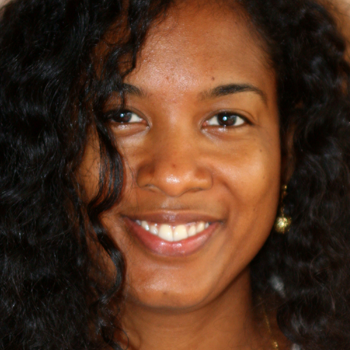
Kelly Baker Josephs
Associate Professor of English at York College, CUNY
Kelly Baker Josephs is Associate Professor of English at York College, City University of New York. She specializes in Caribbean literature, with forays into the digital humanities and women's studies. Her book, Disturbers of the Peace: Representations of Insanity in Anglophone Caribbean Literature (University of Virginia Press, 2013), considers the ubiquity of madmen and madwomen in Caribbean literature between 1959 and 1980. She is the editor of sx salon: a small axe literary platform (smallaxe.net/sxsalon), manages The Caribbean Commons website (caribbean.commons.gc.cuny.edu), and co-organizes the annual Caribbean Digital conference (caribbeandigitalnyc.net). Her current book project, Caribbean Articulations: Storytelling in a Digital Age, explores the intersections between new technologies and Caribbean cultural production.
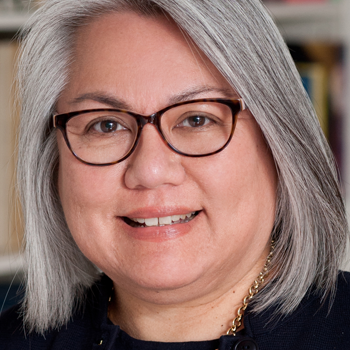
Patricia Hswe
Program Officer, Andrew W. Mellon Foundation
Patricia Hswe is the program officer for Scholarly Communications at the Foundation, which she joined in August 2016. In this role she works on a range of grants and initiatives supporting libraries, archives, museums, universities, presses, and other institutions that further the world's collective knowledge of the humanities. Previously, Patricia was digital content strategist and co-department head of Publishing and Curation Services at the Penn State University Libraries and, at the University of Illinois at Urbana-Champaign, program manager for several digital preservation projects funded by the Library of Congress. Originally a Russian literature scholar, she holds a Ph.D. from Yale University in Slavic languages and literatures. She also received an A.B. in Russian language and literature from Mount Holyoke College and an M.S. in library and information science from the University of Illinois. Patricia is currently a member of the Executive Council of the Association for Computers and the Humanities.
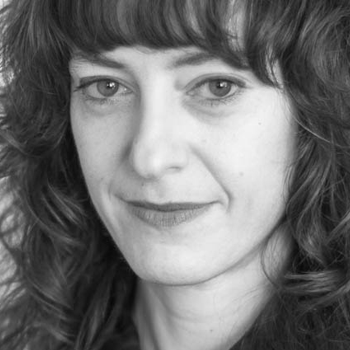
Shana Kimball
Managing Director of Research, Data & Society
Shana brings ten years of experience working in higher ed / research settings as an academic publisher, project and people manager, strategist, communicator, and public speaker on open access, alternative academic careers, and more. Most recently, at NYPL Labs, she led the development of a new initiative to engage technologists, scholars, and other digital practitioners in new uses of the Library’s digital collections and data sources, and to host conversations and incubate experimental projects that explore the future of public knowledge.
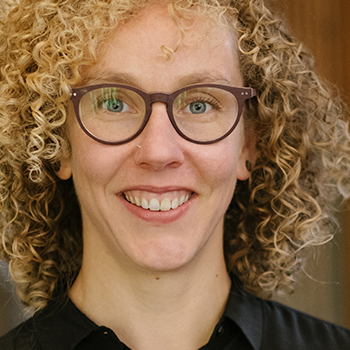
Michelle McSweeney
Postdoctoral Fellow at Columbia University’s Center for Spatial Research
Michelle A. McSweeney is a Research Scholar in the Center for Spatial Research at Columbia University. She is the author of The Pragmatics of Texting: Making Meaning in Messages (Routledge 2018), and co-host of the podcast Subtext (subtextpod.github.io). Her research focuses on digital writing in romantic relationships, particularly how we establish intimacy and trust through text messaging. She uses Natural Language Processing and Machine Learning techniques to identify key features that distinguish romantic from platonic conversations. Recently, she has expanded her research to investigate how politically polarized media outlets discuss politically charged topics such as gun control and immigration, and the linguistic strategies they use to build trust with their audiences. She received her Ph.D. in Linguistics and a certificate in Interactive Technology and Pedagogy from the Graduate Center of the City University of New York in 2016.
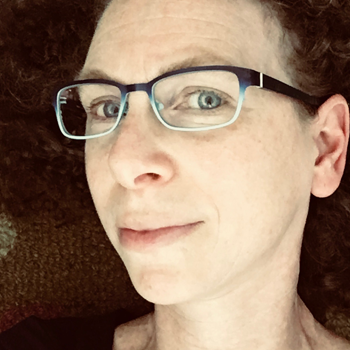
Julia Miele Rodas
Professor of English at Bronx Community College, CUNY
Julia Miele Rodas is Professor of English, teaching writing, literature, and disability studies at Bronx Community College. She holds a Ph.D. in English from the CUNY Graduate Center. A disability studies scholar and Victorianist, Julia is co-editor of a collection on disability in Jane Eyre (The Madwoman and the Blindman, The Ohio State University Press, 2012) and co-editor of the Literary Disability Studies book series for Palgrave Macmillan. Her writing has appeared in numerous books and journals, including Victorian Literature & Culture, Dickens Studies Annual, the Victorian Review, the Journal of Literary & Cultural Disability Studies, Disability Studies Quarterly. Her monograph, Autistic Disturbances, is forthcoming from University of Michigan Press.
Alumni Community Leaders
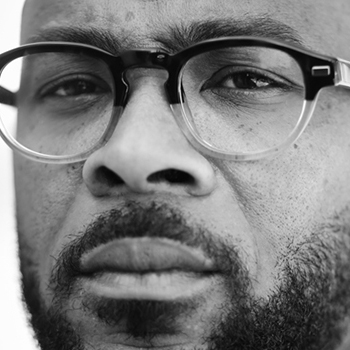
Rico Chapman
Digital Humanities Graduate Course at Clark Atlanta University
Dr. Rico D. Chapman received his PhD in African Studies from Howard University. He is currently an Associate Professor of History at Clark Atlanta University. He also serves as Assistant Dean of the School of Arts and Sciences and Director of the Humanities PhD program. His most recent book is titled Student Resistance to Apartheid at the University of Fort Hare: Freedom Now, A Degree Tomorrow (Lexington, 2016).
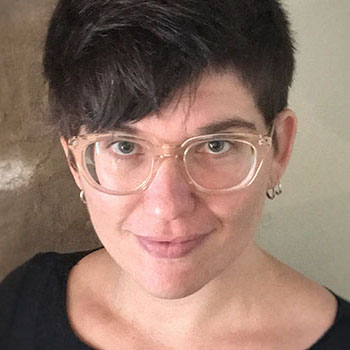
Andrea Davis
DHRI@A-State
Andrea Davis is Assistant Professor of Modern European and Digital History at Arkansas State University. Her research examines the urban social movements and memory cultures of twentieth century Spain, and has been supported by the the Fulbright Foundation and the University of California Humanities Network, among others. In addition to her position at the university, Andrea currently serves as the Associate Director of the Spanish Civil War Memory Project: Audiovisual Archive of the Francoist Repression and the book review editor of the Bulletin for Spanish and Portuguese Historical Studies.
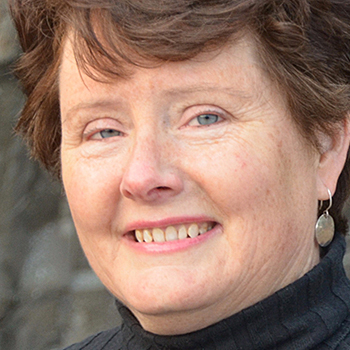
Dianne Fallon
ME.Digital Humanities Institute
Dr. Dianne Fallon is the English Department Chair at York County Community College. Currently, she is involved with integrating more digital tools into English and Humanities classes, both to stimulate interest in humanities subjects and to boost student confidence in using digital technologies. At York County Community College, Dianne teaches a variety of writing courses, including College Composition, Creative Writing and Creative Non-Fiction, as well as Humanities courses such as Multicultural America. In spring 2019, she will teach a new course, "Witches and War, on the Web", in which students will investigate the connection between the Salem Witch trials and Abenaki-colonial warfare in Maine, and will develop their own local history research and digital presentation projects.
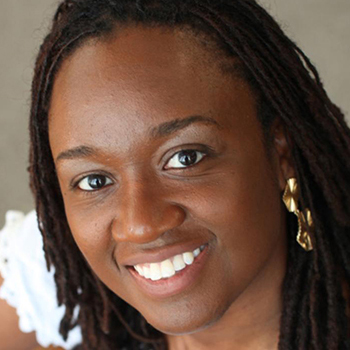
Erika Gault
Africana DHi 2019
Erika Gault is an Assistant Professor of Africana Studies at the University of Arizona. Erika Gault’s scholarly work focuses on the intersection of religious history, technology, and urban black life in post-industrial America.On the topic of hip hop, religion, and digital ethnography she has delivered and published a number of papers regionally, nationally, and internationally. She is an ordained elder at Elim Christian Fellowship in Buffalo, NY and an award winning slam poet. She is currently working on her first book project titled Being Christian, Doin' Hip Hop: A Digital Ethnography of Black Millennial Christianity and a co-edited volume entitled You Gon' Learn Today: The Aesthetics of Christians in Hip Hop.
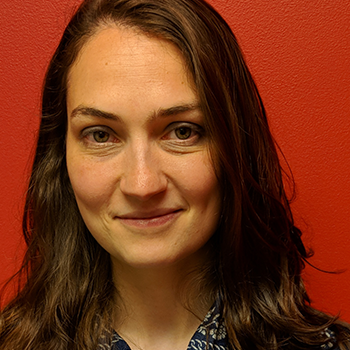
Amy Gay
Binghamton DHRI
Amy Gay recently joined Binghamton University Libraries as their first Digital Scholarship Librarian, where she is leading the implementation of digital scholarship initiatives for the Libraries, works to help strengthen programs related to digital scholarship services, and supports and serves as a resource to faculty developing digital scholarship projects. Before coming to Binghamton University, Amy was part of the National Digital Stewardship Residency (NDSR) D.C. cohort in 2016, which is administered by the Library of Congress and funded by the Institute of Museum and Library Services. During this time, she managed projects at the U.S. Food & Drug Administration that focused on enabling open science, including the creation of a publicly searchable science data catalog for the Office of Science and Engineering Laboratories within the Center for Devices and Radiological Health. She received her MLIS from Syracuse University, and her research interests include primary source literacy, interactive technology and pedagogy, war history and cultural heritage preservation. In her free time, Amy enjoys attending trivia nights, hiking along the Upstate gorges, and trying out local eateries and diners.
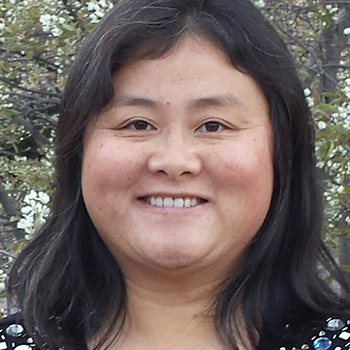
Sophia Geng
Digital Technologies Conference at College of Saint Benedict and Saint John's University
Growing up in Shandong, China, Dr. Sophia Geng obtained her MA from Beijing Foreign Studies University and her Ph.D. from the University of Minnesota-Twin Cities, U.S.A. Dr. Geng’s academic interests lie in oral history, the safeguarding of cultural heritage and East Asian literature. Joining the College of Saint Benedict and Saint John’s University (CSB/SJU) in 2007, Dr. Geng currently is an Associate Professor at the Department of Languages and Cultures. She also served as the Director of the Asian Studies Program from 2013 to 2017. CSB/SJU are two top-ranked liberal arts colleges in Minnesota, U.S.A., that share an integrated academic partnership. With a combined enrollment of 4,000 students, CSB/SJU are the largest liberal arts colleges in the U.S.
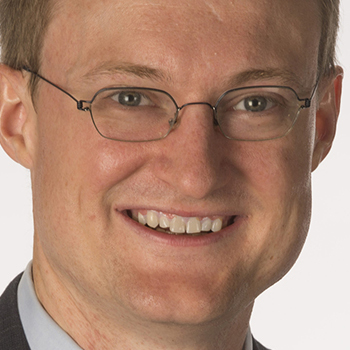
Daniel Johnson
DHRI South Bend
Daniel Johnson is subject specialist for English literature and digital humanities at the University of Notre Dame's Hesburgh Libraries System. He has graduate degrees in English from Wake Forest University (MA) and Princeton University (PhD), where he specialized in literature of the long eighteenth-century.
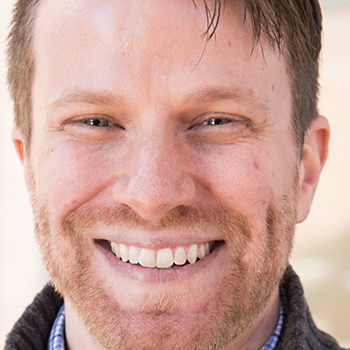
Nathan Kelber
Triangle Digital Humanities Institute
Nathan Kelber is the Digital Scholarship Specialist at the University Libraries, University of North Carolina at Chapel Hill. He comes from Detroit where he worked as a professor, public historian, and community organizer. Kelber is most well-known for his work on Detroit 67, a citywide campaign to commemorate the 1967 Detroit Uprising and encourage racial harmony, as well as his other project Network Detroit, a regional digital humanities conference. At UNC, Kelber helps faculty and graduate students with digital projects and serves as a library point of contact for local digital humanities communities and initiatives.
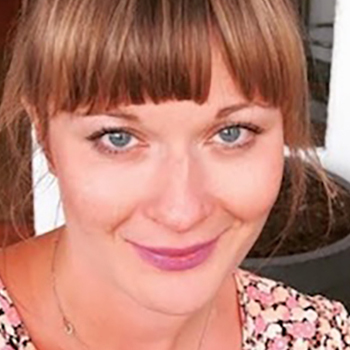
Frances McDonald
Digital Humanities Research Institute at University of Louisville
Frances McDonald is Assistant Professor of English at the University of Louisville where she works on critical theory and twentieth-century American literature and film. Her current book project examines the textual forms that laughter takes in twentieth-century literature and philosophy. Her work has appeared in American Literature, LA Review of Books, and The Atlantic, among other venues. She is also the co-editor and co-designer of thresholds, an occasional digital zine for creative/critical scholarship.
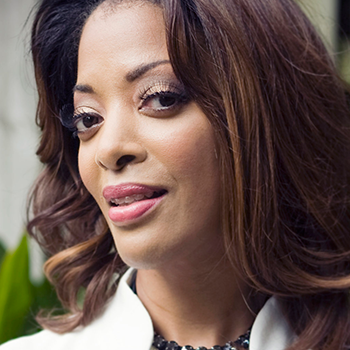
Marion McGee
Digital Humanities Afrofuturism Workshop at Association of African American Museums annual conference
Marion “Missy” McGee is a servant leader who believes in creative problem solving through the embrace of failure, experimentation and innovation. Marion is on the Association of African American Museums (AAAM) Board of Directors where she chairs the Communications Committee. She also serves as a Museum Program Specialist in the Office of Strategic Partnerships at the National Museum of African American History and Culture (NMAAHC). She is responsible for the design, implementation and evaluation of key collaborative initiatives, multi-state programs for the only national museum congressionally mandated to strengthen and elevate the profile of African American museums, Historically Black Colleges and Universities, and other institutions promoting the study or appreciation of African American history and African diaspora cultural heritage in the United States. She is currently pursuing a PhD in Leadership and Change to investigate methods of preserving the leadership legacy of Black Museum Movement pioneers. As a scholar-practitioner, Marion is working to identify best practices for advancing, growing and sustaining organizations founded by or on behalf of persons of African descent. Her areas of expertise include long-term strategic planning and prudent financial management through participatory leadership.
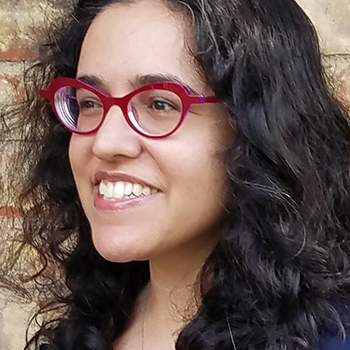
Rafia Mirza
DHRI at SMU
Rafia Mirza is a Humanities Research Librarian at SMU. She received her MSI from the University of Michigan. Her research interests include digital humanities, digital project planning, and issues around labor and community in digital humanities and digital pedagogy.
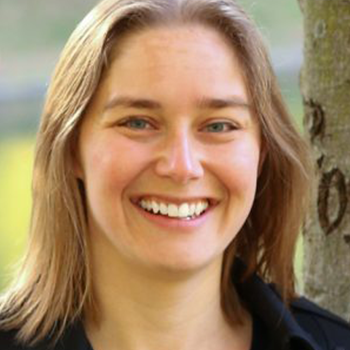
Sarah Noonan
DHRI South Bend
Sarah Noonan received her Ph.D. in medieval English literature from Washington University in St. Louis. As an Assistant Professor at Saint Mary’s College, she teaches courses in early British literature, book history, and the history of the English language. She is the author of essays on manuscript studies, medieval reading practices, devotional literature, and pedagogical practice. She is currently working on a project entitled “Peripheral Manuscripts” that seeks to assist non-R1, manuscript-holding institutions in digitizing their respective holdings and displaying them in a collective digital repository in order to increase that material’s visibility among the scholarly community.
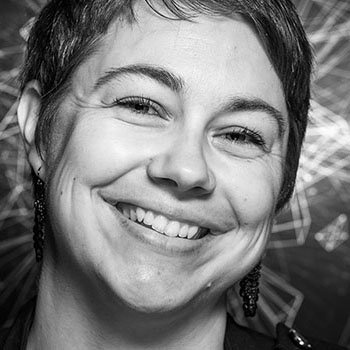
Alicia Peaker
Tri-Co DHRI
Alicia Peaker (PhD, Northeastern University) is the Digital Scholarship Specialist at Bryn Mawr College. Previously, she completed a CLIR/DLF Mellon Postdoctoral Fellowship in the Digital Liberal Arts at Middlebury College. While in graduate school, she served as the Co-Director of Our Marathon: The Boston Bombing Digital Archive, which won an award as the Best DH Project for Public Audiences in 2013. She has also worked as the Project Manager for The Women Writers Project and as the Managing Editor for GradHacker, a collaborative blog published through Inside Higher Ed. Her current research project explores ways of visualizing the botanical worlds of novels.
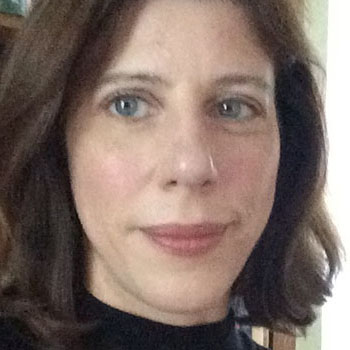
Alexandra Sarkozy
Wayne State University DHRI
Alexandra Sarkozy is a science and digital scholarship librarian at Wayne State University in Detroit, MI. She has been working with faculty and librarians to incorporate digital tools into humanities classrooms, and to build digital infrastructure for humanities computing within the library. She is a also a graduate student in American History at Wayne State University. Her research interests include history of medicine, historical mapping, and data sharing and preservation.
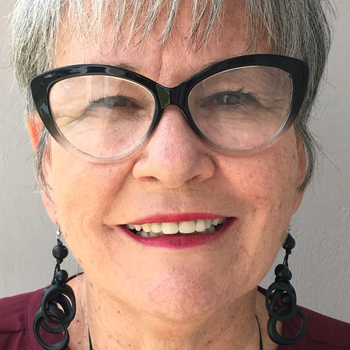
Rosín Torres
Evangelical Seminary of Puerto Rico DHRI
Rosín Torres-Medina is a Professional Librarian at Juan De Valdes Library of the Evangelical Seminary of Puerto Rico (SEPR) after graduating from the University of Puerto Rico. Her Master's capstone project explored open journals system technology. She has attended continued education workshops in transdisciplinary research, editing scientific journals in electronic format, and technology for online education. She is mostly passionate in collaborating and promoting learning of library resources such as the OPAC, the databases, Mendeley reference manager, digital tools and skills among faculty and students. She is engaged in promoting collaboration and open access projects at the library and regularly participate in workshops and courses around the latest research techniques and enhancement of research and writing skills. Academically, she is interested in Digital Humanities, in the areas of Bible and religion. Her career revolves around technology, as she loves to inspire change as a means for challenge and opportunities. The capacity of libraries to help people achieve their common and academic goals has always been an interest of hers.
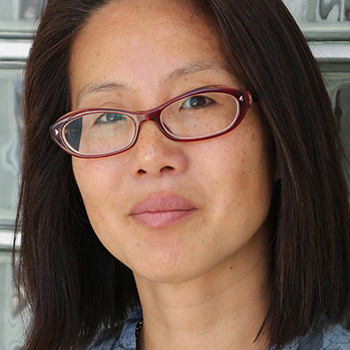
Nancy Um
Binghamton DHRI
Nancy Um is Professor in the Department of Art History and co-director of the Middle East and North Africa Studies Program at Binghamton University. Her research explores the Islamic world from the perspective of the coast, with a focus on material, visual, and built culture on the Arabian Peninsula and around the rims of the Red Sea and the Indian Ocean. She is the author of The Merchant Houses of Mocha: Trade and Architecture in an Indian Ocean Port (University of Washington Press, 2009) and Shipped but not Sold: Material Culture and the Social Protocols of Trade during Yemen’s Age of Coffee (University of Hawai’i Press, 2017). She recently co-edited (with Carrie Anderson), "Coordinates: Digital Mapping and 18th-C Visual, Material and Built Cultures," Journal18: a journal of eighteenth-century art and culture (Spring 2018).
